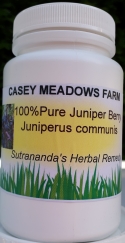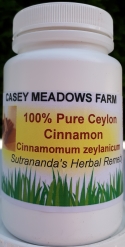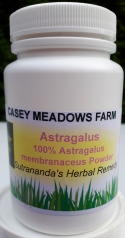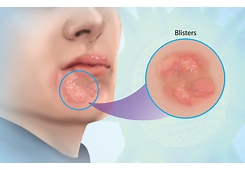 Candida yeast
infection (candidiasis) and herpes are two
completely distinct infections.
Herpes is an infection
caused by the Herpes simplex virus (HSV).
HSV1 causes cold sores (oral herpes) and may also cause
genital herpes; HSV2 causes genital herpes, but can also
infect the mouth. While oral herpes is spread by direct
contact, genital herpes is sexually transmitted. Yeast
infections, on the other hand, are caused by infection
causing yeast Candida. Although
herpes and candidiasis are distinct infections, either
of these infections may make you more susceptible to get
the other infection.
Candida yeast
infection (candidiasis) and herpes are two
completely distinct infections.
Herpes is an infection
caused by the Herpes simplex virus (HSV).
HSV1 causes cold sores (oral herpes) and may also cause
genital herpes; HSV2 causes genital herpes, but can also
infect the mouth. While oral herpes is spread by direct
contact, genital herpes is sexually transmitted. Yeast
infections, on the other hand, are caused by infection
causing yeast Candida. Although
herpes and candidiasis are distinct infections, either
of these infections may make you more susceptible to get
the other infection.
|
How can candida infection put you at higher
risk for getting herpes?
Candida is a normal microorganism of the
oropharyngeal (mouth and pharynx),
gastrointestinal (gut) and urogenital tract
and lives in these environments without
causing any problem. Our immune
system and
our normal microbial flora work to keep the
growth of candida in balance. There are a
large number of mechanisms by
which our immune system defends against
candida; there are also an equally large
number of mechanisms by which candida
evades our immune system. When there is a
disturbance in the body environment, candida
wins the fight against our immune system,
becomes invasive and starts growing fast and
causes infection. The first thing that you
need to remember is that if you already have
candida infection, your immune system is
already compromised.
Research published by Swedish researchers in
2005 showed that women who had chronic
vaginal candida infection had higher levels
of the stress hormone “cortisol” in their
blood. According to these researchers the
stress hormones can be either due to
lifestyle issues or due to candida infection
triggering stressed relationships. Chronic
stress has been linked with
impairment of immunity. Thus, not only can
you get candida infection from having
chronic stress, you can also get chronic
stress from having candida. Either way, your
immune system is not under optimal
conditions and will make you susceptible to
other infections like oral or genital herpes
apart from other infections. Added to a
lower immunity will be damage to the mucous
membranes of oropharyngeal tract and vagina.
How can herpes infection put you at a higher
risk for getting candida?
It is well known that herpes viruses affect
our immune response. A
study by Russian scientists in 1995 showed
that viral infection (including that by
HSV2) of the genitals reduces the immunity
afforded to us by the immune cells. A
cell study published
in 2008 by researchers from Italy showed
that HSV1 causes dysfunction of our immune
response against fungi (the study involved
Candida). Although the immune cells are more
efficient in ingesting candida, they have a
reduced capacity to kill them – this
facilitates the survival and replication of
candida. Although we must note that these
were studies carried out in cells, it is
quite possible that our bodies have a
reduced capacity to fight fungal infections
if we have HSV1 infection.
Another proposed mechanism for
dual infection by HSV and candida is that
injury is caused to the epithelium by HSV
first that leads to the disruption of
mucosal barrier which then allows candida
invasion.
|
|
|
|
Herbal remedies that help with
Herpes |
| |
|
|
|
Juniper berry-90
capsules-Take one capsule three times a day
|
Ceylon cinnamon-90
capsules-Take one capsule three times a day(powdered
extracts have been found to be deadly to
all species of yeasts. )
|
Astragalus-60
capsules-Take one capsule twice a day
|
|
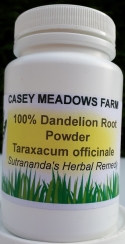 |
Of all the natural herpes remedies,
tea tree oil
seems to be the most popular
and well-known. This herpes remedy has a
reputation for relieving both oral
herpes and genital herpes within hours.
It’s a natural antiseptic,
antibacterial, anti-viral, and
anti-fungal that can boost immunity and
fight off infections. |
|
|
|
Dandelion root-30
capsules-Take one capsule twice a day
|
|
|
|
 Candida yeast
infection (candidiasis) and herpes are two
completely distinct infections.
Herpes is an infection
caused by the Herpes simplex virus (HSV).
HSV1 causes cold sores (oral herpes) and may also cause
genital herpes; HSV2 causes genital herpes, but can also
infect the mouth. While oral herpes is spread by direct
contact, genital herpes is sexually transmitted. Yeast
infections, on the other hand, are caused by infection
causing yeast Candida. Although
herpes and candidiasis are distinct infections, either
of these infections may make you more susceptible to get
the other infection.
Candida yeast
infection (candidiasis) and herpes are two
completely distinct infections.
Herpes is an infection
caused by the Herpes simplex virus (HSV).
HSV1 causes cold sores (oral herpes) and may also cause
genital herpes; HSV2 causes genital herpes, but can also
infect the mouth. While oral herpes is spread by direct
contact, genital herpes is sexually transmitted. Yeast
infections, on the other hand, are caused by infection
causing yeast Candida. Although
herpes and candidiasis are distinct infections, either
of these infections may make you more susceptible to get
the other infection.